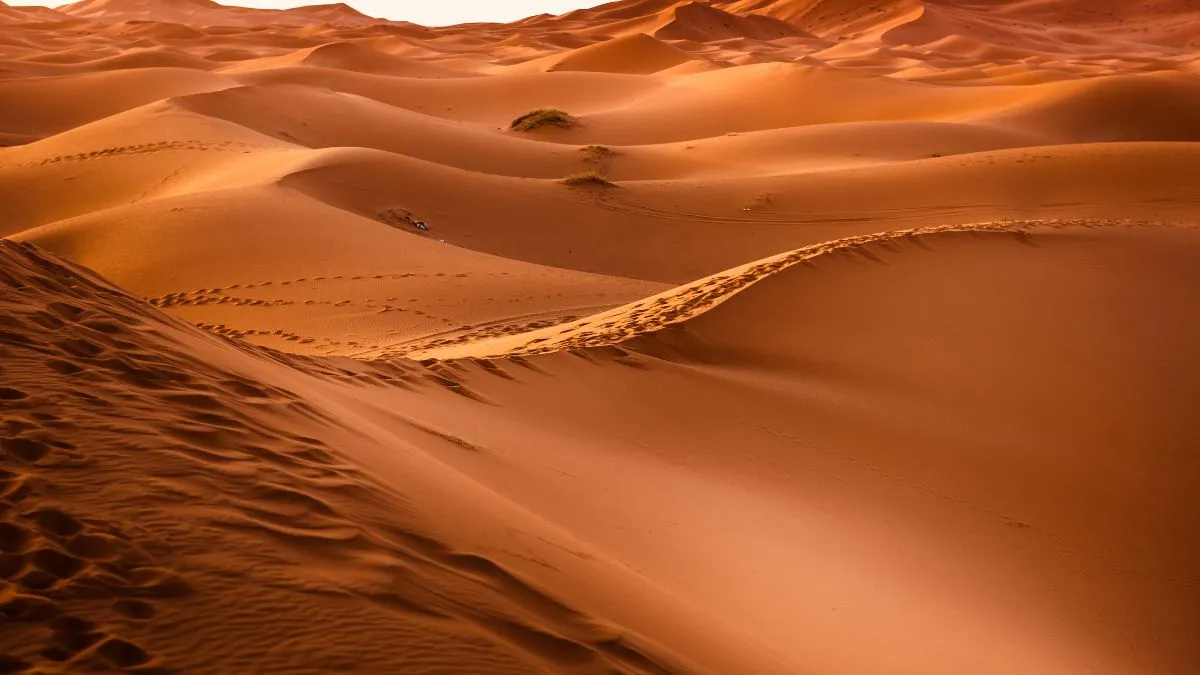- By Deeksha Gour
- Mon, 25 Aug 2025 08:55 PM (IST)
- Source:JND
Jaisalmer: Fossil remains discovered last week in Megha village, around 45 km from Jaisalmer, have been confirmed as belonging to a phytosaur, making it the first well-preserved specimen of this prehistoric reptile found in India. Locals uncovered the two-metre-long fossil while digging near a lake and reported it to the district administration and archaeology department. Experts confirmed the find, alongside what appeared to be a fossilised egg, possibly belonging to the reptile.
The NDTV report cited Professor VS Parihar, senior palaeontologist at Jai Narain Vyas University, Jodhpur as stating that, the phytosaur looked like a crocodile and was about 200 million years old. “It was a medium-sized reptile that likely lived near rivers and survived on fish,” he explained. Phytosaurs are known to have existed around 229 million years ago, extending into the early Jurassic period.
Dr Narayan Das Inakhiya, leading the fossil studies in Jaisalmer, highlighted the significance of the discovery. “This find points to a rich aquatic ecosystem in the Thar Desert millions of years ago. The area, part of the Lathi Formation, indicates freshwater and marine life, suggesting there were rivers on one side and seas on the other,” he said. The Lathi Formation spans about 100 km long and 40 km wide in western Jaisalmer.
Phytosaurs resembled modern crocodiles with heavy bodies, short legs, long tails, toothy snouts and rows of armoured scales. A key difference is that their nostrils were positioned on a raised hump in front of their eyes, unlike crocodiles. Despite the similarities, phytosaurs are not closely related to crocodiles.
ALSO READ: Rajasthan Rain Fury: Six killed, Two Missing As Showers Continue To Lash Parts Of State
This discovery marks possibly the fifth dinosaur-related find in the Jaisalmer region. Earlier discoveries include bone fossils in Thiyat, dinosaur footprints, and a well-preserved dinosaur egg found in 2023. Locals gathered at the site, sharing photos and videos of the fossil on social media.
Experts suggest the site could be developed for geo-tourism while preserving the remains for scientific study. The region also holds geological interest due to underground water channels linked to the mythic Saraswati River, dating back 5,000–6,000 years before the Vedic period.

